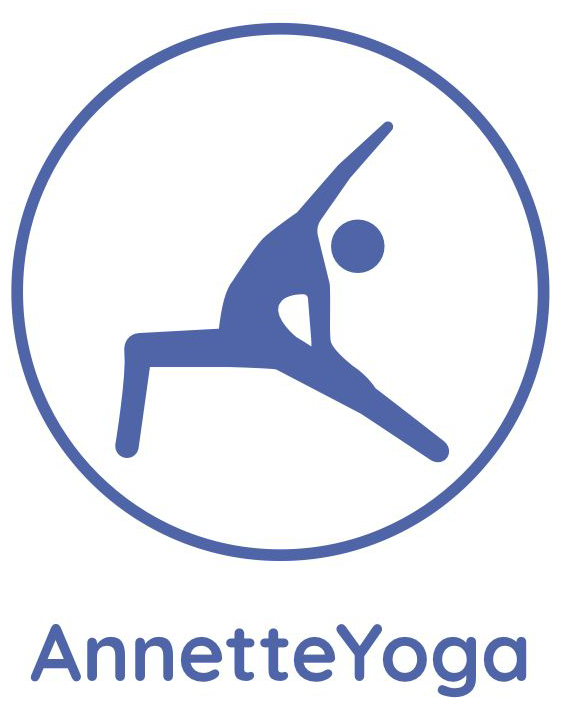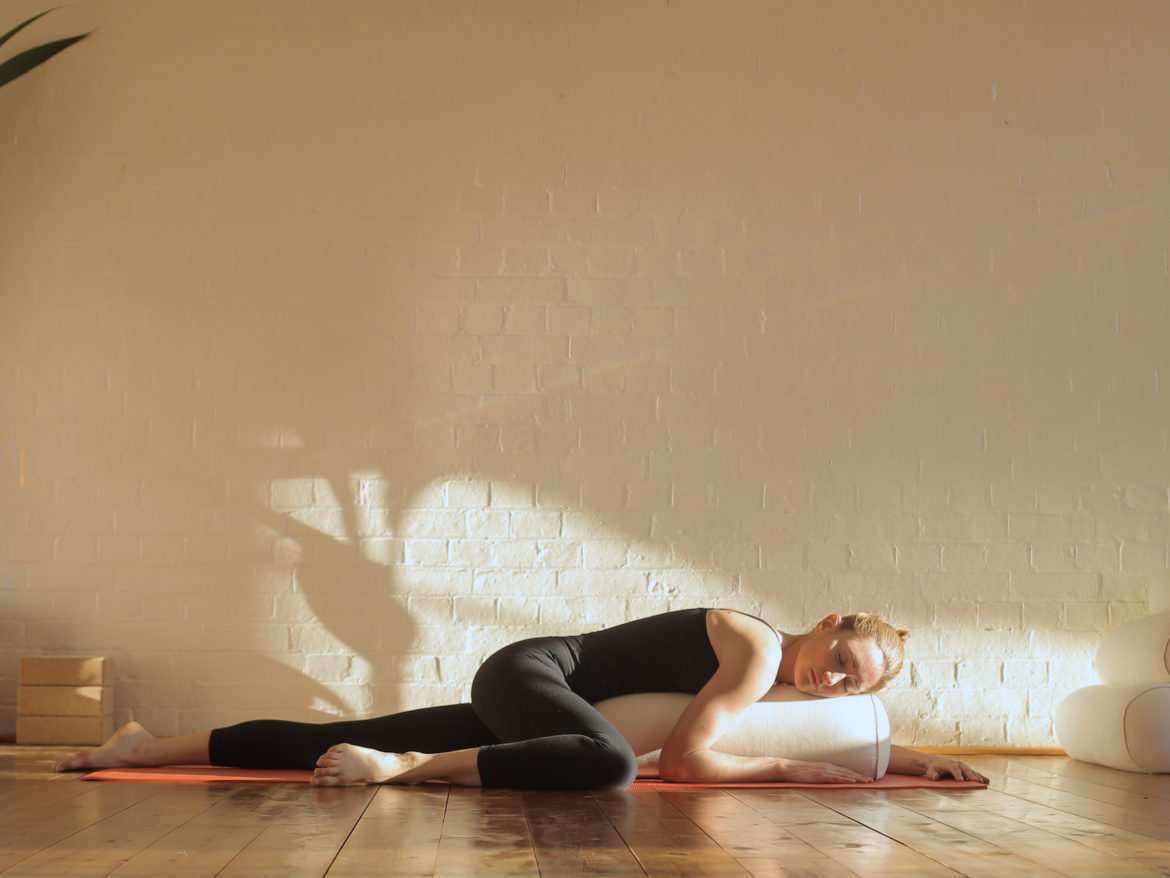While “yang” yoga focuses on your muscles, yin yoga targets your deep connective tissues, like your fascia, ligaments, joints, and bones. It’s slower and more meditative, giving you space to turn inward and tune into both your mind and the physical sensations of your body. Because you’re holding poses for a longer period of time than you would in other traditional types of yoga, yin yoga helps you stretch and lengthen those rarely-used tissues while also teaching you how to breathe through discomfort and sit with your thoughts.
The practice of yin yoga is based on ancient Chinese philosophies and Taoist principles which believe there are pathways of Qi (energy) that run through our bodies. By stretching and deepening into poses, we’re opening up any blockages and releasing that energy to flow freely.
The goal isn’t to move through postures freely–postures could be held for three to five minutes, or even 20 minutes at a time. A yin practitioner is trying to access the deeper tissues, and many of the postures focus on areas that encompass a joint (such as the hips, sacrum, and spine, to name a few).
What are the health benefits?
- Lengthens connective tissue
Think of your fascia like shrink wrap around your muscles and bones. When this connective tissue is underused, it becomes less elastic which can lead to aches and stiffness. Gently stretching connective tissue by holding a yin pose for a long time, the body will respond by making them a little longer and stronger. - Increases flexibility
Elastic fascia and mobile joints lead to better flexibility, which is one of the key benefits to a regular yin yoga practice. Because fascia needs at least 120 seconds of sustained stretching to actually affect its elasticity, yin is one of the most effective ways at improving your flexibility and releasing tension in tight spots thanks to its long holds. - Boosts your circulation
By breathing into each pose and targeting your deeper tissues and ligaments, you bring more oxygen into your body and to your muscles. This helps increase your blood flow and circulation. - Reduces stress levels
That calm you feel after a yin class is very real—studies have found yin yoga to have a significant impact on lowering stress and anxiety and reducing the risk of depression. Plus, it activates your parasympathetic nervous system, which calms your body and slows your heart rate (rather than the autonomic nervous system, which triggers your fight-or-flight response).

